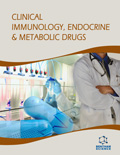Abstract
Recently has been acknowledged the healthy use of Bacillus and related bacteria as probiotics. A mixture reported to contain four probiotic strains of Bacillus clausii is marketed as an OTC (Over The Counter) medicinal supplement for human use. Their poliantibiotic resistant property, useful for restoring the gut microbiota during antibiotic treatment, raises the question about the risk of resistance transfer. In order to better assess the risk-benefit ratio it is important to always monitoring the pattern and stability of resistance spectra in these bacteria. In this work, we have extensively redefined the antibiotic susceptibility profile of these four probiotic strains. Resistance phenotype has been determined by screening a large number of antibiotics, including natural products (such as penicillin, vancomycin and erythromycin), and completely synthetic molecules (such as fluoroquinolones). Extensive comparison with a wild type strain belonging to the normal intestinal microbiome was carried out. The molecular basis of some resistances was determined. Observed antibiotic resistances were correlated with previous and new data in safety evaluations of these strains for human use.
Keywords: Antibiotic resistance, Beneficial microbes, Bacillus clausii, Probiotics.
 41
41

